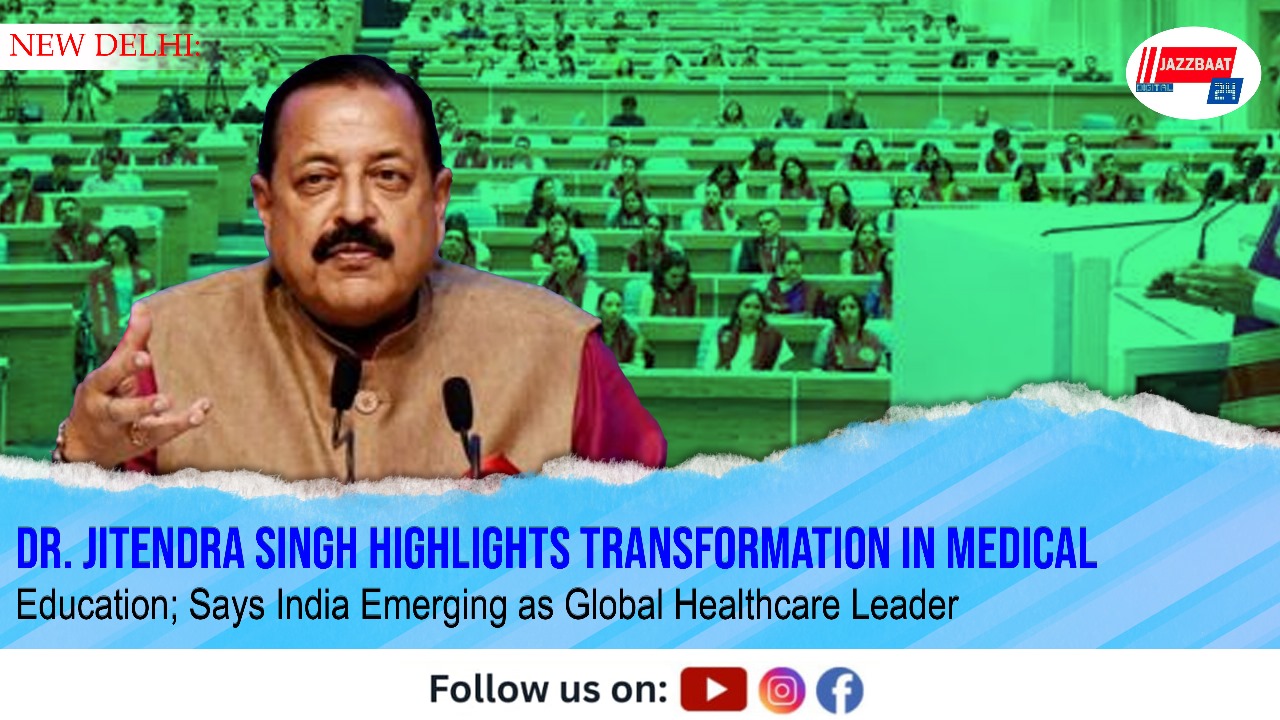NEW DELHI: Union Minister Dr. Jitendra Singh on Saturday said that India’s healthcare system has undergone a transformative shift over the past decade, becoming more accessible, affordable, and inclusive. He was addressing the 54th Foundation Day and Convocation Ceremony of the University College of Medical Sciences (UCMS), University of Delhi.
Conferring degrees upon undergraduate and postgraduate students, Dr. Singh urged young doctors to embrace technological innovation while retaining empathy and compassion. He noted that the number of undergraduate medical seats in India has tripled in ten years, from around 45,000 to nearly 1.5 lakh, marking a significant expansion in medical education and opportunities for women.
Highlighting India’s achievements in biotechnology, Dr. Singh said, “The Department of Biotechnology has developed the world’s first DNA vaccine for COVID-19 and the HPV vaccine for cervical cancer prevention.” He added that India now supplies indigenous vaccines to more than 200 countries, showcasing its emergence as a global leader in healthcare innovation.
Referring to the evolution of healthcare delivery, he described it as “three-fold, accessible, affordable, and available.” Initiatives like Ayushman Bharat and Jan Aushadhi Kendras, he said, have made quality healthcare more inclusive and patient-centric. He also pointed out that India’s health insurance now covers pre-existing diseases, calling it “one of the most humane innovations in public health policy.”
Dr. Singh emphasised the importance of collaboration among academia, government, and industry. Citing examples such as the indigenous antibiotic Nafithromycin and successful gene therapy trials for haemophilia published in the New England Journal of Medicine, he said these milestones signify India’s growing leadership in preventive and therapeutic medicine.
Discussing the role of technology, he said artificial intelligence is set to revolutionise diagnostics and patient care, even enabling tele-mobile clinics capable of communicating in patients’ native languages.
A souvenir marking UCMS’s 54-year journey was also released at the event, which concluded with awards for outstanding students and faculty. Dr. Singh urged the graduating doctors to help shape a “healthier, more self-reliant India” as the nation approaches its centenary of independence in 2047.
